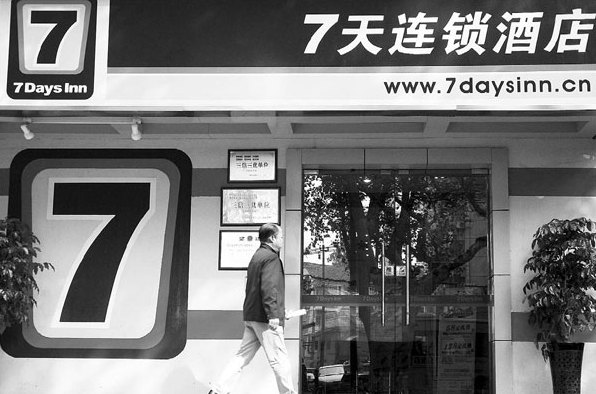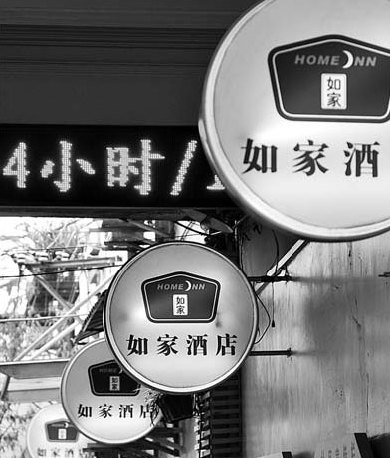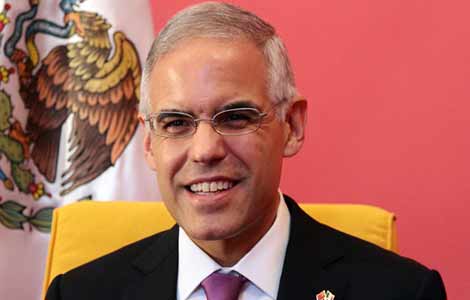Carlyle checks into Chinese hotel sector
Updated: 2013-09-20 15:58
By Cai Xiao (China Daily)
|
||||||||
As the economy maintains its healthy course, more are investing in the hospitality industry, Cai Xiao reports.
Carlyle Group has developed a taste for the Chinese hotel industry and its investment pace in the sector this year is expected to remain solid. The latest move by Carlyle - one of the world's largest private equity firms - was to complete a deal to take 7 Days Group Holdings Ltd private. The company, which was listed on the New York Stock Exchange, runs the 7 Days Inn budget hotel chain in China. In March, 7 Days Group said that Carlyle, Keystone Lodging Co Ltd and Sequoia Capital planned to acquire the company for $4.60 per ordinary share, or $13.80 per American Depositary Share.
In July, 7 Days Group, Carlyle and Sequoia Capital announced the establishment of the Plateno Hotels Group and said that the 7 Days Inn chain would become part of it. The Plateno Hotels Group will develop another four high-end and mid-tier hotel brands based on the 7 Days Inn's concept.
"With the acceleration of the country's urbanization drive and an improvement in Chinese people's disposable income, customers will have more specific requirements and the coverage of high-end and economic hotels will have a bigger market space," Eric Zhang, a managing director at Carlyle, told China Daily.
|
In July, 7 Days Group, Carlyle Group and Sequoia Capital announced the establishment of the Plateno Hotels Group and said that the 7 Days Inn chain would become part of it. The Plateno Hotels Group will develop another four high-end and mid-tier hotel brands based on the 7 Days Inn's concept. Provided to China Daily |
Zhang said that the hotel sector has a close relationship with the country's economy. And as the Chinese economy remains on a healthy track, investing in the Chinese hotel industry has great potential.
"The business risk pattern of the hotel sector is low, and brands, sites and resources are key factors of the sector and it's hard for competitors to copy them," he said.
Zhang added that the relatively high valuation of the hotel sector is another reason behind Carlyle's confidence in the industry.
"Although lots of budget hotels emerged and competition among them was fierce, the market is far from being saturated," said Zhang, adding that budget hotels are able to compete with guesthouses and two- and three-star hotels.
Industry insiders said that Carlyle is taking part in the 7 Days Inn deal not because the valuation of the company was lower than its real value, but because Carlyle is confident on the company's growth prospects and sustainable profitability.
Carlyle also took a controlling 49 percent stake in China's Mandarin Hotel Holdings Ltd in July last year, in a bid to tap into the country's emerging mid-tier hotel market.
The value of the investment was not revealed, but a typical deal by the fund through which the investment was made - Carlyle Asia Partners III LP, which totals $2.55 billion - is usually worth more than $75 million.
"The mid-tier market in China is very fragmented and of great potential, and Mandarin Hotel Holdings is a leader in this market with its product design and marketing strategies," said Zhang. "So we feel confident (the deal will) help the company to perfect its business and brand to win in the market."
The total number of rooms of Chinese mid-tier hotel chains only accounts for 12 percent of the whole mid-tier hotel industry, according to Carlyle data.
Founded in 2006, Mandarin Hotel Holdings, which is not related to the Mandarin Oriental chain, operates 25 hotels in six major Chinese cities, 14 of them in Beijing. It operates hotels under the Crystal Orange and Orange brands.
"The Chinese high-end and budget hotels have developed very well, while even the largest 10 mid-tier hotels account for no more than 5 percent of the mid-tier hotel market," said Wu Hai, founder and chief executive officer of Mandarin Hotel Holdings and a former vice-president at Ctrip, a major online travel agency in China.
Carlyle's third hotel deal in China was in 2008 when it invested $100 million in New Century Hotels & Resorts.
New Century Hotels Real Estate Investment Group, the first Chinese hotel real estate investment trust, had its initial public offering in Hong Kong in July. The IPO raised HK$676 million ($87 million).
In addition, the company said it signed a three-year loan agreement totaling HK$1.93 billion with several banks led by Standard Chartered, with HK$1.47 billion of the funds coming from offshore loans.
"Our REITs will benefit from the (solid) Chinese economy, the rapid growth of China's tourism sector, and the appreciation of the yuan," said Chen Miaolin, chairman of New Century. "With the cooperation with Carlyle, we will seize M&A opportunities as well as our own growth to develop our REIT business."
Before Carlyle's investment, New Century only had a dozen hotels, but now it has 107 hotels in operation, with new ones in the pipeline.
Zhang said that, unlike the real estate sector, the hotel sector has to pay attention to profitability and brand cultivation. Some first-class hotels do not care for profitability and only hope that their land increases in value, Zhang added.
Carlyle helped New Century to focus on hotel development rather than on property projects, as well as on promoting its brand, inviting industry experts and improving its member systems and marketing operations.
Previously, New Century owned some land and more was rented, but now it will adopt an asset-light strategy.
Also, Zhang said that Chinese clients are the main customers of high-end hotels in second- and third-tier cities, so the company has launched several campaigns with Chinese characteristics to satisfy their requirements.
For instance, many Chinese customers don't mind spending over 1,000 yuan ($162.15) for a meal, but they only want to pay 600 to 700 yuan for a room.
New Century also pays close attention to its greeting patterns, the design of conference rooms, and even details such as the slippers provided to guests.
"As competition for good deals intensifies, being an industry insider with a professional attitude has to be a new trend," said Zhang, adding that the company will explore more opportunities in the hotel sector in the coming years.
Liu Zehui, managing director at Legend Capital, told China Daily that there are now fewer investment opportunities in the Chinese budget hotel sector, because brands such as Home Inn and Hanting have been industry leaders for a long time and grabbed a large market share. However, there are still some attractive deals in the hotel industry.
"Investing in middle- and high-end hotels in China can have great potential," said Liu, adding that domestic three- and four-star hotels have the advantage of local knowledge and lower costs when competing with foreign companies.
Liu added that Carlyle's deal to take 7 Days private may be profitable, but that growth will likely not be as high as it would have been in previous years because similar-level hotels have boosted operations, and many new competitors have entered the field.
In June 2012, budget hotel chain Pod Inn received investment totaling $55 million from five equity investment firms including Legend Capital. Pod Inn financed its first equity investment funds worth 5 million yuan with money from Legend Capital in 2010.
Pod Inn's chief operating officer Shi Yangqing told China Daily that Chinese customers are very rational when it comes to choosing hotels, and brand and services are very important.
"Although we operate budget hotels, we will not simply increase the number of branches. Instead, we focus more on details and personality," said Shi, adding that the decoration of Pod Inn hotels is fashionable and trendy and that they have just spent 10 million yuan to improve the beds.
By the end of 2013, Pod Inn plans to increase the number of its branches across China to 300.
Since entering the Chinese market in 1998, Carlyle has made about 70 deals in China. Of these, the amount of equity investment deals totaled $4.7 billion.
In 2012, Carlyle's investment in China totaled $700 million with the money coming from five funds related to the country. Carlyle also cashed out $1.5 billion in the country last year.
In January, Carlyle sold its remaining stake in China Pacific Insurance (Group) Co Ltd in a deal valued at $793 million. The private equity firm began selling its stake in the insurer in late 2010, and it earned about $4 billion from stock sales over that time, five times the $800 million it had invested between 2005 and 2007 for a 17 percent stake in the Chinese firm, according to calculations by Thomson Reuters.
Contact the writer at caixiao@chinadaily.com.cn
|
Brands such as Home Inn and Hanting have been industry leaders for a long time and grabbed a large market share of the budget hotel sector. However, experts say there are still some attractive deals in the hotel industry. Provided to China Daily |
(China Daily USA 09/20/2013 page16)

 iPhone 5s, iPhone 5c hit Chinese market
iPhone 5s, iPhone 5c hit Chinese market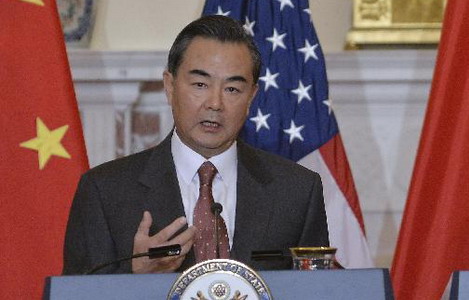
 China to play 'constructive' role on Syria: FM
China to play 'constructive' role on Syria: FM
 iPhone 5s, iPhone 5c hit Chinese market
iPhone 5s, iPhone 5c hit Chinese market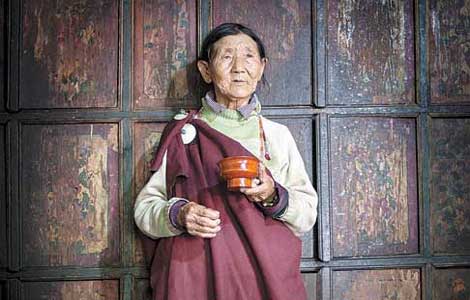
 Faces of Tibet
Faces of Tibet
 Full moon across China
Full moon across China
 Wearable technology, the new game-changer
Wearable technology, the new game-changer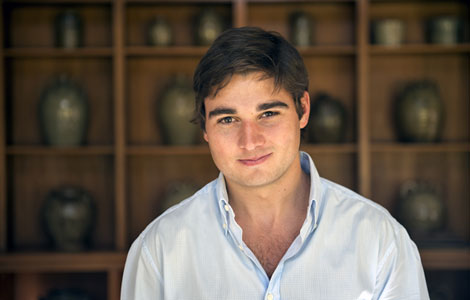
 Tapestry of Chinese culture and a Harvard teen's feeling
Tapestry of Chinese culture and a Harvard teen's feeling
 A simple but pure festival tradition
A simple but pure festival tradition
Most Viewed
Editor's Picks

|

|

|

|

|

|
Today's Top News
UN lauds China on food waste efforts
Chinese firms face trust deficit
13 injured in Chicago park shooting
Wang and Kerry meet in DC
Belgian zoo owner set to host Chinese pandas
Trending news across China
Fast-track process sees more NGOs
Beijing sends out positive smoke signals
US Weekly

|

|
